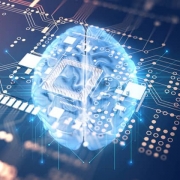How AI in ERP will drive smarter cloud cost control
One of the biggest game-changing fields that artificial intelligence (AI) is dipping its feet is its integration with enterprise resource planning (ERP) platforms. Technology editor and expert Adrian Bridgwater shares an article on ERP Today depicting how AI in ERP is the driver to better and smarter cloud cost control. “With the rapid developments currently being seen in generative Artificial Intelligence (gen-AI),” notes Bridgwater,”existing ERP systems can be enhanced and augmented in new ways to extend, enhance and augment their core functionalities. But as important as front-line functionality always is, we can now elevate our use of AI to point towards cloud cost control in the FinOps space at a higher-level platform tier.” CEO of smartR AI Oliver King-Smith adds, “By integrating AI with ERP systems and cloud-based data sources, FinOps will experience significant advancements. AI’s capacity to correct and update real-time information in an ERP system through third-party source integration paves the way for heightened efficiency. Moreover, its predictive analytics capabilities enable a more intricate analysis of the enterprise, anticipating seasonal, marketing-based and channel-centric fluctuations that drive higher profitability and top-line growth.” Bridgwater explains that the fusion of AI with FinOps could enhance legacy system integration, amalgamating incompatible systems into the ERP framework from a holistic perspective. “As AI accelerates information flow across cloud data sources, it empowers FinOps teams with what many agree are swift and profound insights into the enterprise’s competitive position. By demonstrating quantifiable efficiencies in maintaining the FinOps environment while amplifying profitability and growth potential, those embracing AI will undoubtedly yield substantial value increases for all stakeholders,” he states. In addition, King-Smith has said that GPT models could complement ERP systems by providing Natural Language Interfaces where GPT helps create more intuitive ways for users to interact with ERP systems, using natural language queries instead of complex navigations. “Report Generation as GPT can assist in generating summaries and reports from the data within an ERP, making information easier to understand,” he explains, “Intelligent Assistance where GPT-like models might provide suggestions or insights based on the data within an ERP, acting as a smart assistant for users.”




Leave a Reply
Want to join the discussion?Feel free to contribute!